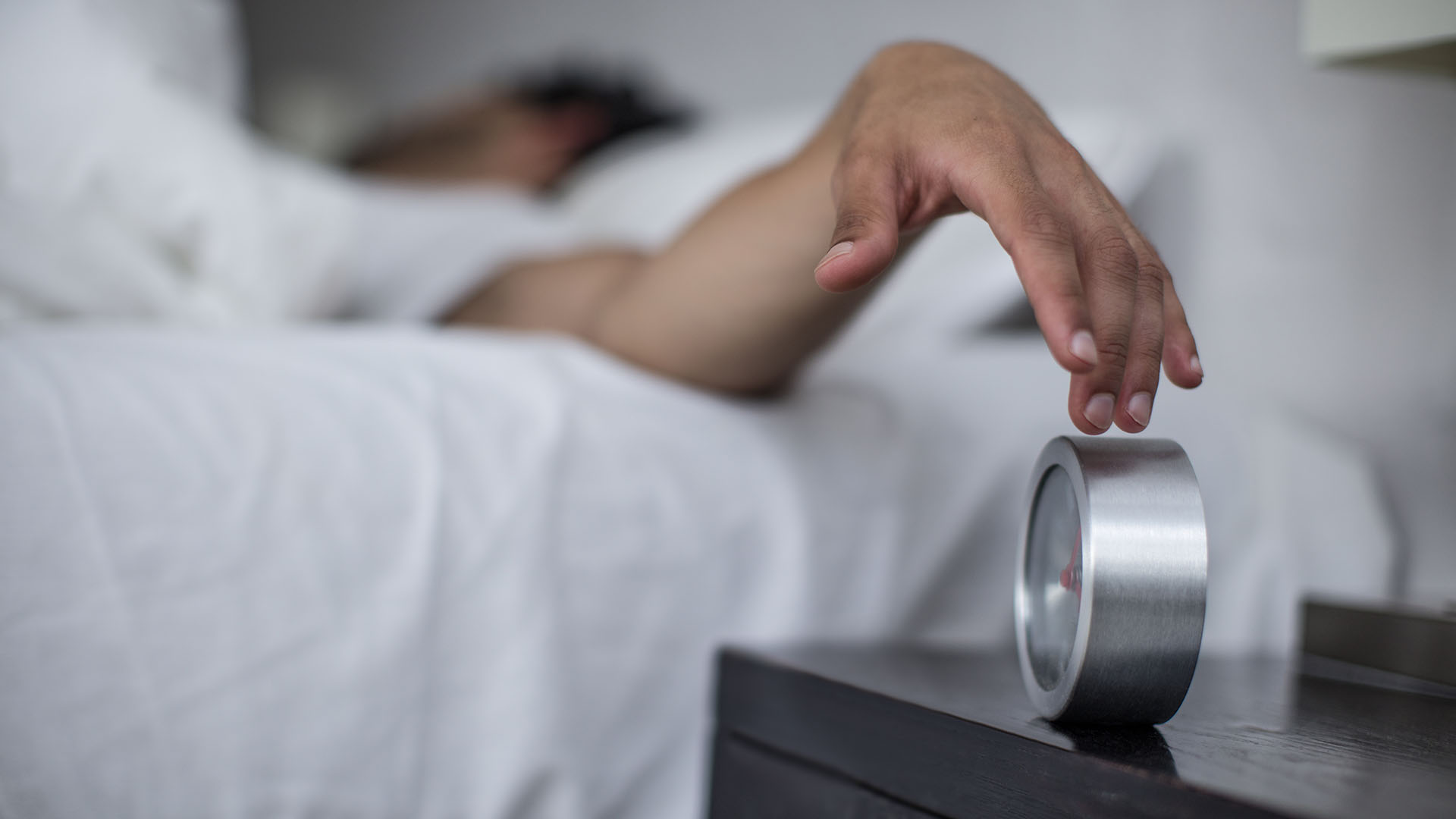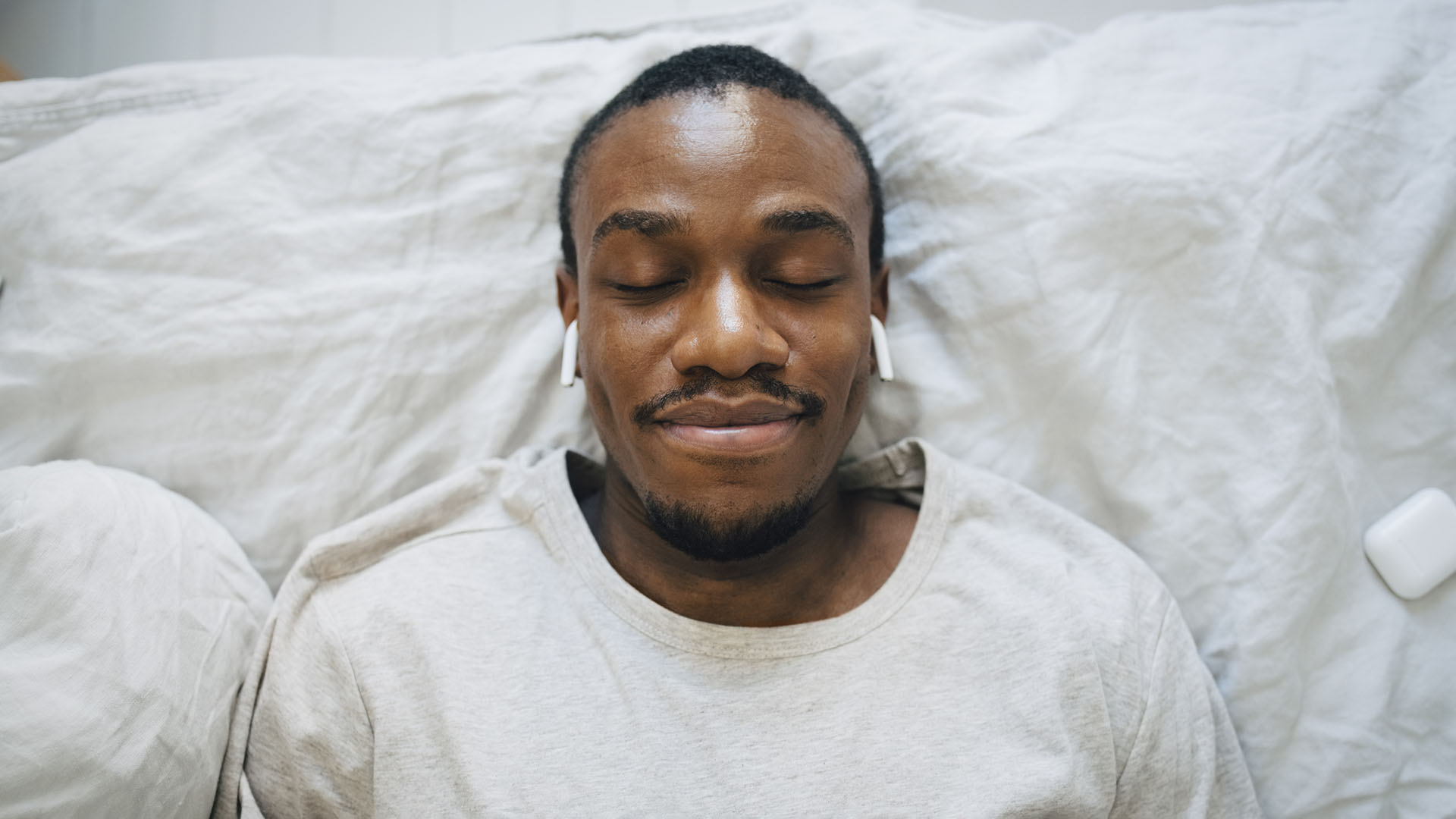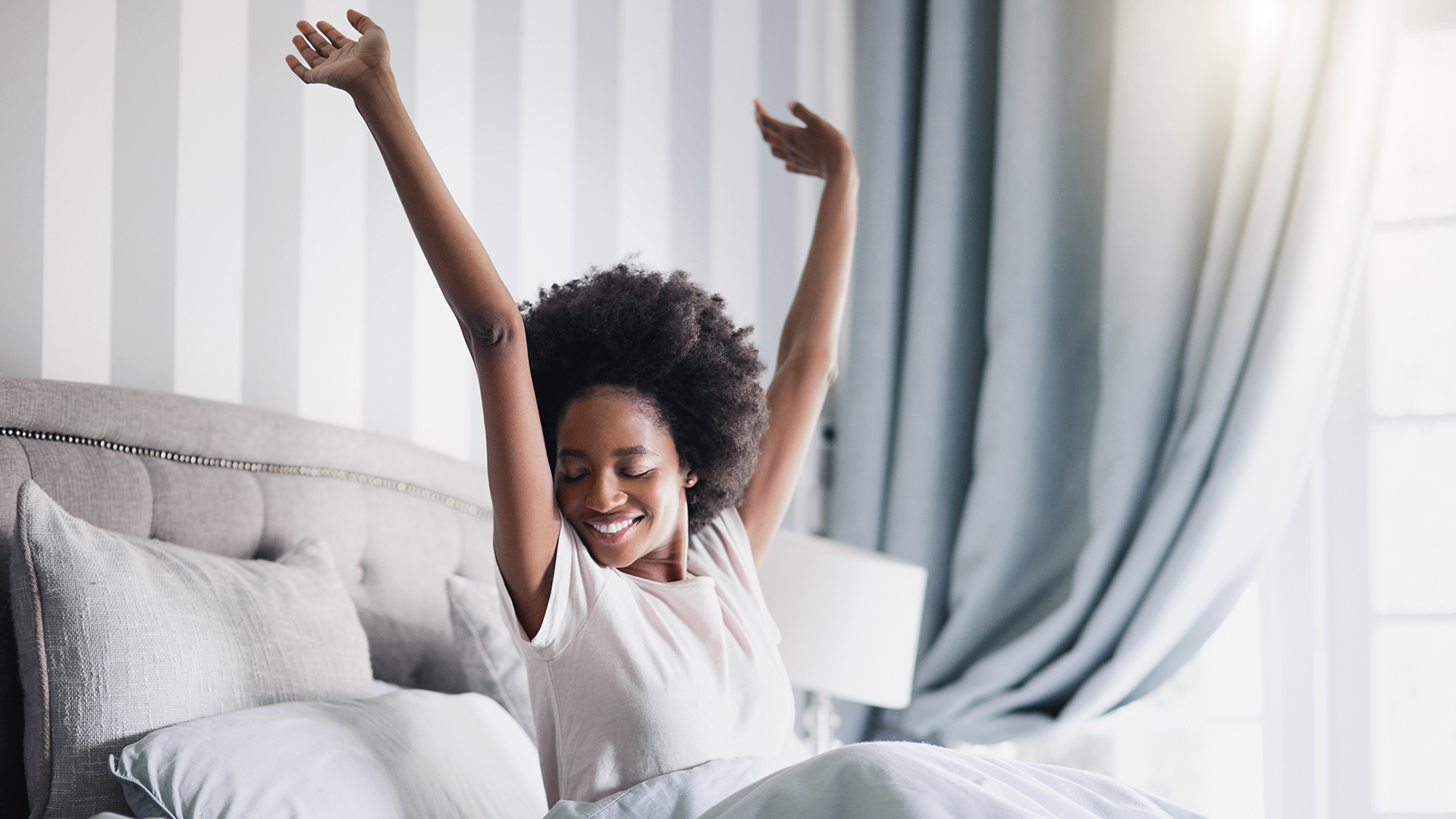"Sleep happens" – it's time to stop micromanaging your nights, says sleep specialist
8 hours a night isn’t the be-all and end-all

When you think about how well you are sleeping, one factor that probably comes into it is the number of hours you're clocking up each night. All of today's best sleep trackers report this kind of data. But focusing on these numbers could be doing more harm than good, according to Angela Kondinska, a neuroscientist and sleep specialist who works with Emma (one of our best mattress brands).
"There's a very strong focus on eight hours – that this is the solution for everybody," she says. "I believe a lot of this focus is also the stress around sleep." Rather than setting a mental timer and getting frustrated if you don't hit your hourly goal, here's what to do instead...
1. Explore what works for you
When working out your ideal bedtime routine, don't get too hung up on following external 'rules'. The best approach will always be whatever what works for you.
"It's all about focusing away from micromanaging sleep," she continues. "The more we say, 'Okay, you have to do this, [the more] stress builds up, and then we end up sleeping less because of the stress. And then it creates this cascade."
Instead she suggests trying out whatever methods appeal to you. "Allow yourself to explore in a curious way. There's a long list of sleep tips. Try out different things… and see what works," says Angela. "If [one thing] doesn't work, that's okay, because there's something else that will work."
2. Think about the hours either side of sleep
Rather than concentrating entirely on the time that you're asleep for, Angela recommends widening that out to include the hours either side of bedtime. Figure out a bedtime routine that works for you – that might include saving special activities for bedtime, using music to relax you, trying a bedtime box, or even just adding some structure with something like the 10-3-2-1-0 sleep method.
And while you're at it, take a look at your morning wakeup habits. If you're finding you're hanging about in bed for too long or developing an over-reliance on the snooze button, the 3-2-1 method might be the solution for you.
Sign up for breaking news, reviews, opinion, top tech deals, and more.

3. Give it time
While you're figuring out your routine, don't expect instant results. You need to give each technique at least a few nights' trial to give it a fair chance. "What usually brings a lot of relaxation is repetitiveness – our brains love being able to predict something," says Angela. Sleep studies are never just one night; they're run over a few weeks in order to see the effects.
Angela suggests repeating the same routine every night, so you become familiar with the situation, the tasks, and the order in which you do them. That will help amplify the feeling of relaxation.
4. Listen to your body
The figure of eight hours a night isn't a hard-and-fast rule in any case. General consensus is somewhere between seven to nine hours, and how much sleep you need varies by age, too, as well as from person to person. So the best way to tell if you've had enough sleep is by listening to your body, suggests Angela. If you wake up after seven hours' sleep and you feel comfortable and awake, then that's fine. If you're an adult and you're sleeping a bit more than 8 hours but you're not having the effects of oversleeping, then that's also fine.

5. Don't rely on 'topping up' with naps
Angela flags that the focus on hitting a certain nightly quota of sleep means some people will try and 'top up' with naps in the day. "[There's a belief that] we can sleep little, overnight, and then take naps to overcome the sleep debt," she says. "Something that is still important is to have a full night of sleep, and to not chop it up throughout the day."
That's important because we need our body to go through sleep cycles – starting in light sleep, moving into deep sleep and finally REM sleep to get the full physical and mental benefits. A nap can be useful on occasion, but it's rare you'll be getting your full 90-minute sleep cycle, so it's not a substitute for sleeping in one long block.
6. Don't panic over a few bad nights
No one likes a sleepless night, but it's not the end of the world, Angela reminds us. "Sleep happens, right?" she smiles. "It's part of life. And sometimes it's okay to have a few nights… of bad sleep."
For the vast majority of us, it's only going to be temporary. "Keep in mind that a good night is coming soon. It could be the next night; it could be in a night or two. So that's okay."

Ruth is TechRadar's Homes Editor specializing in air (vacuum cleaners, fans, air purifiers), and hair (hair dryers, straighteners and stylers). She has been in consumer journalism since 2020, reviewing and writing about everything from outdoor kit to mattresses and wellness gadgets, with stints on Tom's Guide and T3.